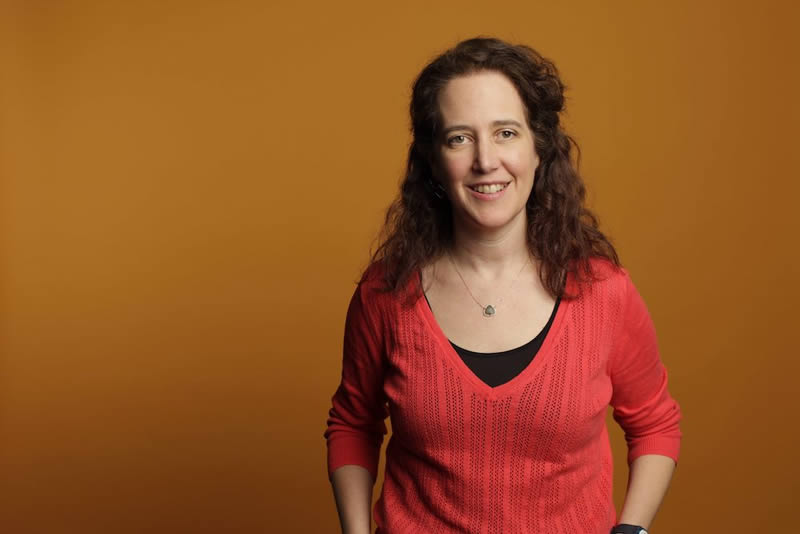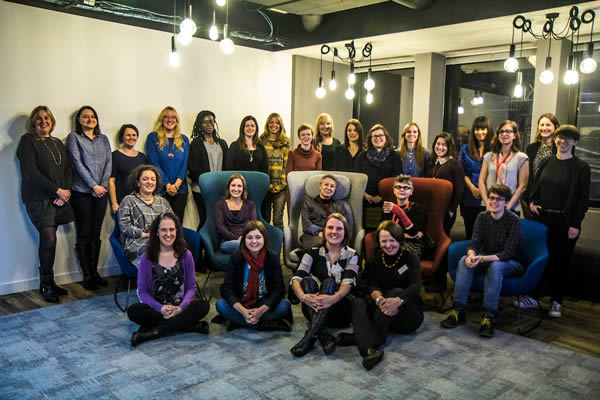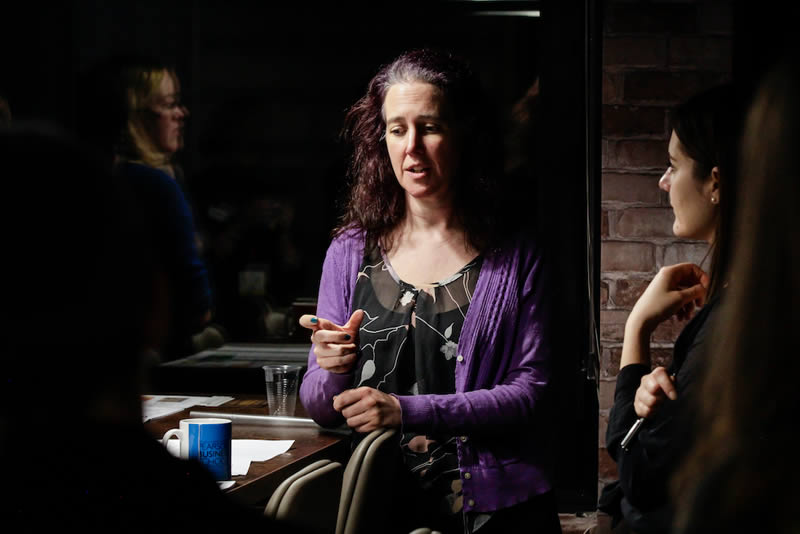
Member Profile | Debra Coleman
This month we caught up with Debra Coleman who recently left DNEG after 16 years to set up Open Frame Coaching. We find out how Debra got into the industry and what has led her to pursue this new adventure.
How did you get into VFX/Compositing?
Whilst at University, studying English Literature and Media Studies, I particularly enjoyed the practical photography and video modules, which was when it first occurred to me that a job behind the camera or in post-production might actually be a possibility – and an exciting one! After graduating, I moved to London and applied for every job in tv/video/film/post that I saw advertised. Finally, after what felt like an eternity, but was actually about 7 months – was offered a job as a Runner at Cinesite.
It was at Cinesite that I really got an education in visual effects. As a runner, I got to know everyone at the studio and found that most people were happy to talk about what they did, which provided an invaluable overview. I moved in into Video-to-Film transfers and then realised I had an interest in compositing, so started also doing some basic prep and roto work before joining the comp team. One of my first projects as a comper was Lara Croft: Tomb Raider – I think that’s when I truly realised the level of detail I needed to work at!
After 7 years at Cinesite, I felt the pull of working overseas and spent a very happy year and a half in California, at Tippett Studio. On my return to London, I joined Double Negative, which was small at that time and had a similar ‘family’ feel to Tippett and Cinesite. Not long after joining, I fell pregnant, which then led to me returning to work part-time – unheard of at that time! Ultimately, I remained at DNEG for 16 years, progressing into comp management roles as the company grew.
What do you like about it?
I’ve always enjoyed the blend of technical skills and creativity and using this to aid the story-telling process. Following a project from concept, all the way through to final delivery showed me that anything is possible – sometimes to our detriment if the client is indecisive! I also just love the people involved as, in my experience, VFX artists, production and support teams share a passion and are collaborative, smart, creative people which I find inspiring and energising.
How did you transition to being a coach and how does it tie into VFX?
At the end of 2020, I left my position as Global Head of Compositing at DNEG to set up my coaching consultancy, Open Frame Coaching, providing coaching for VFX professionals and companies. I realise this sounds like quite a departure, but actually, VFX and coaching have been intertwined for me for a number of years.
I think the seed was planted for me when I attended leadership training by Career Savvy (funded by DNEG). I was also fortunate enough to also be coached by Jan Armstrong. This course opened my eyes to effective leadership and the power of coaching within an organisation.
Following many years of adopting an informal coaching approach as a manager, I decided to invest in a specific coaching course which I completed during our first lockdown of 2020. Since then, I have been building my coaching experience and ultimately decided to pour all my energy into this newfound passion. With my background in VFX, I’m finding that my clients choose to work with me as “I get it” which provides a handy shortcut during our sessions.
I also really, truly believe that all VFX companies could benefit from adopting more of a coaching culture to support and elevate everyone within their teams.
You took part in the inaugural Achieve programme. What did you learn from this?
I was delighted to be accepted on AWUK’s first Achieve programme, headed up by the wonderful Helen North. I thoroughly enjoyed every workshop, both getting to know the other ‘Senior’ women (what a way to be referred to!) and hearing the passion, potential and frustration of the junior and mid-level women. My main takeaway from this is how important it is for women to support each other at all stages of their careers: as women, we do face barriers and are better equipped to overcome these when we can reach out to each other for support.

Animated Women UK Achieve Programme Class of 2017
What have you gained from being part of Animated Women UK?
Until attending my first AWUK event (with what felt like hundreds of us crammed into the upstairs room of a pub), I had never felt any need to call attention to the fact I was a woman in a male-dominated industry, however, Louise Hussey’s speech really struck a chord and made me stop and think about the lack of equality and opportunity for women in our industry and how wrong this is! It was also refreshing socially (being with women) and I came away motivated to ‘do something’.
Since then, I have overcome my nerves and sat on panels when asked as I understand the importance of representation and I ended up chairing the women’s group at DNEG, pushing for better representation and inclusion of women at the company.
Since that first event, I have continued to enjoy each AWUK event I’ve been to, finding it refreshing to meet other talented women from throughout Animation and VFX and finding inspiration in the speeches/panels put on. For example, Sue Lister’s openness and honesty at the most recent zoom event was really powerful.
Why do you feel it’s important to support women and junior talent in the industry?
I guess I’ve already touched upon this, as it’s interwoven with my career experience. I’m an advocate for flexible working for mums and carers; I understand the importance of representation; I would encourage everyone to either offer to mentor or seek a mentor (or both!).
Things are improving in terms of the number of women taking VFX/Animation courses and being offered junior roles, however, I strongly feel there is still a lot to be done to ensure women are able to progress within the industry at the same rate as their male colleagues. I believe that coaching for anyone moving into a new role of responsibility can hugely grow their confidence (and therefore ability), so would recommend this for companies looking to support their women. I am also keen to see women better supported on their return to work from maternity leave and offer coaching throughout this period too. By truly supporting and retaining women at this stage in their career, it will ultimately help to improve representation in senior roles as well as contributing to reducing the gender pay gap over time.

Debra Coleman | www.openframecoaching.com
What have you learned during lockdown?
Oh, good question! I’ve certainly learnt all of the walking and running routes on my doorstep! And that marking the end of another day of working from home is essential for my mental health – I find jumping up and dancing to a good playlist, even for 15 mins, really helps with this!
Seriously though, as a mother of two teenagers, I have had an up-close-and-personal look at how lockdown has impacted our mental well-being – and it’s different, but noticeable, for each of us. Also, in my roles as Head of Compositing and as a professional coach, I’m noticing common themes of people feeling isolated and I think this is particularly problematic for those who are living alone, perhaps a long way from family. Whilst at DNEG, I ran a group coaching programme to help connectivity and well-being for those who were feeling isolated; I also set-up a monthly, zoom coffee morning for women only, both of which really helped.
Personally, I’ve also been reminded of the importance of reaching out to my friends and family – I may miss hugging them, but a phone chat still provides important support and connection at a time when we are probably all feeling quite alone.

